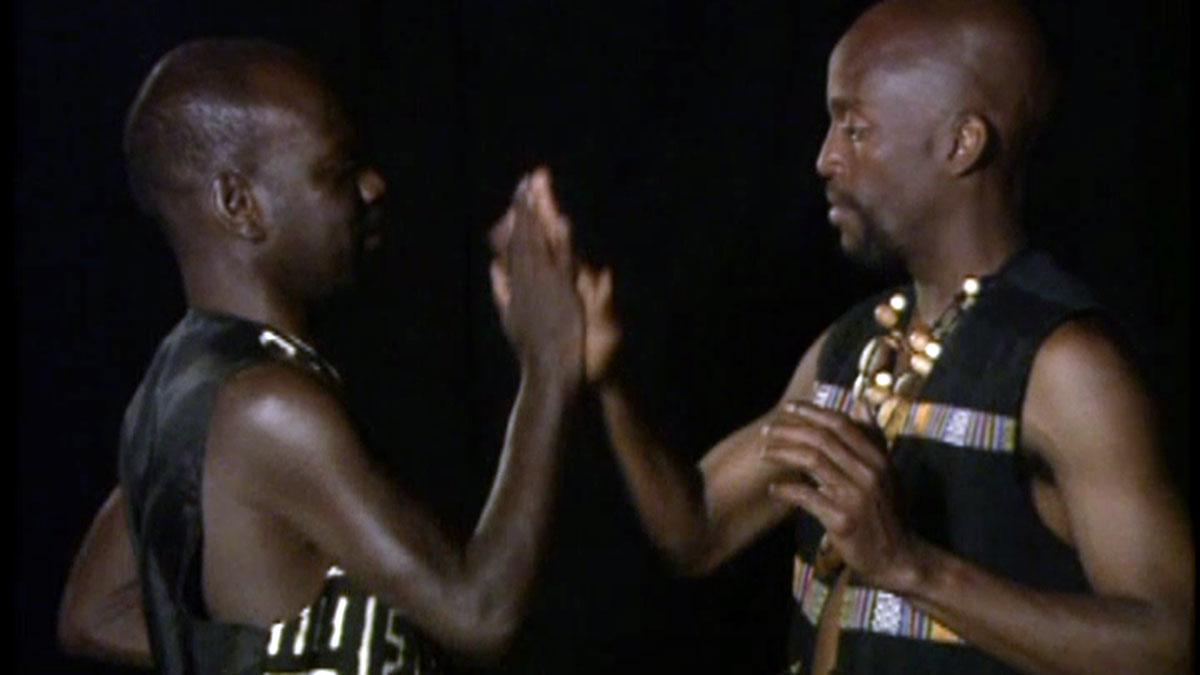Black is... Black ain't
-
Réalisé par Marlon T. Riggs, Christiane Badgley • Écrit par Marlon T. Riggs
-
États-Unis • 1994 • 87 minutes • Couleur
- Réalisation :
Marlon T. Riggs, Christiane Badgley - Écriture :
Marlon T. Riggs - Image :
Robert Shepard - Son :
Sekou Shepard - Montage :
Christiane Badgley, Bob Paris - Musique originale :
Mary Watkins - Mixage :
Mark Escott
- Production (structure) :
Marlon T. Riggs, Nicole Atkinson - Ayant droit :
Marlon T. Riggs, Nicole Atkinson
- N° ISAN :
non renseigné
Résumé
Dans les années 70, celles de sa jeunesse, Marlon Riggs et ses contemporains se sont emparé de nouvelles facettes de l’identité noire. Des symboles forts, comme le slogan "Black is beautiful", ont à la fois encouragé la fierté noire et ouvert des débats sur les critères de cette identité et ses contours. Avec ce documentaire, Riggs s’engage dans des dialogues omnidirectionnels (hommes, femmes, jeunes, vieux, riches, pauvres, citadins, ruraux, homos, hétéros, étudiants, intellectuels ou amis) à propos des nuances de cette identité. Celle-ci se révèle aussi diverse et riche que le gombo de sa grand-mère.
Made with an urgency imparted by the knowledge that he was nearing the end of his life, Marlon Riggs’s final film—completed by a group of his collaborators after his death of AIDS-related illnesses—is a wide-ranging consideration of a question that had long been central to his work: What does it mean to be Black? Using his grandmother’s gumbo recipe as a metaphor for the diversity of the African American experience, Riggs travels the country, seeking insights from leading thinkers like Angela Davis, Henry Louis Gates Jr., bell hooks, Barbara Smith, and Cornel West, as well as everyday people—young and old, rich and poor, rural and urban, gay and straight—all grappling with the numerous, often contested definitions of Blackness that have shaped their lives. Punctuated by footage of a dying Riggs directing his crew and delivering parting wisdom from his hospital bed, Black Is . . . Black Ain’t breaks down the divides of class, colorism, patriarchy, and homophobia as it issues a stirring appeal for unity.
Mot(s)-clé(s) thématique(s)
Sélections et distinctions
- 2021 • Chéries-Chéris - Festival LGBT de Paris • Paris (France) • Renaissance Noire
- 1995 • Sundance Film Festival • Utah (États-Unis) • Filmmakers Trophy Documentary
Comment avoir accès au film ?
- Sortie en salle
- Édition DVD
-
Accès VOD
- Il n'existe pas d'accès en VOD à notre connaissance
- Distribution
- Aide sur les moyens d'accéder à un film


